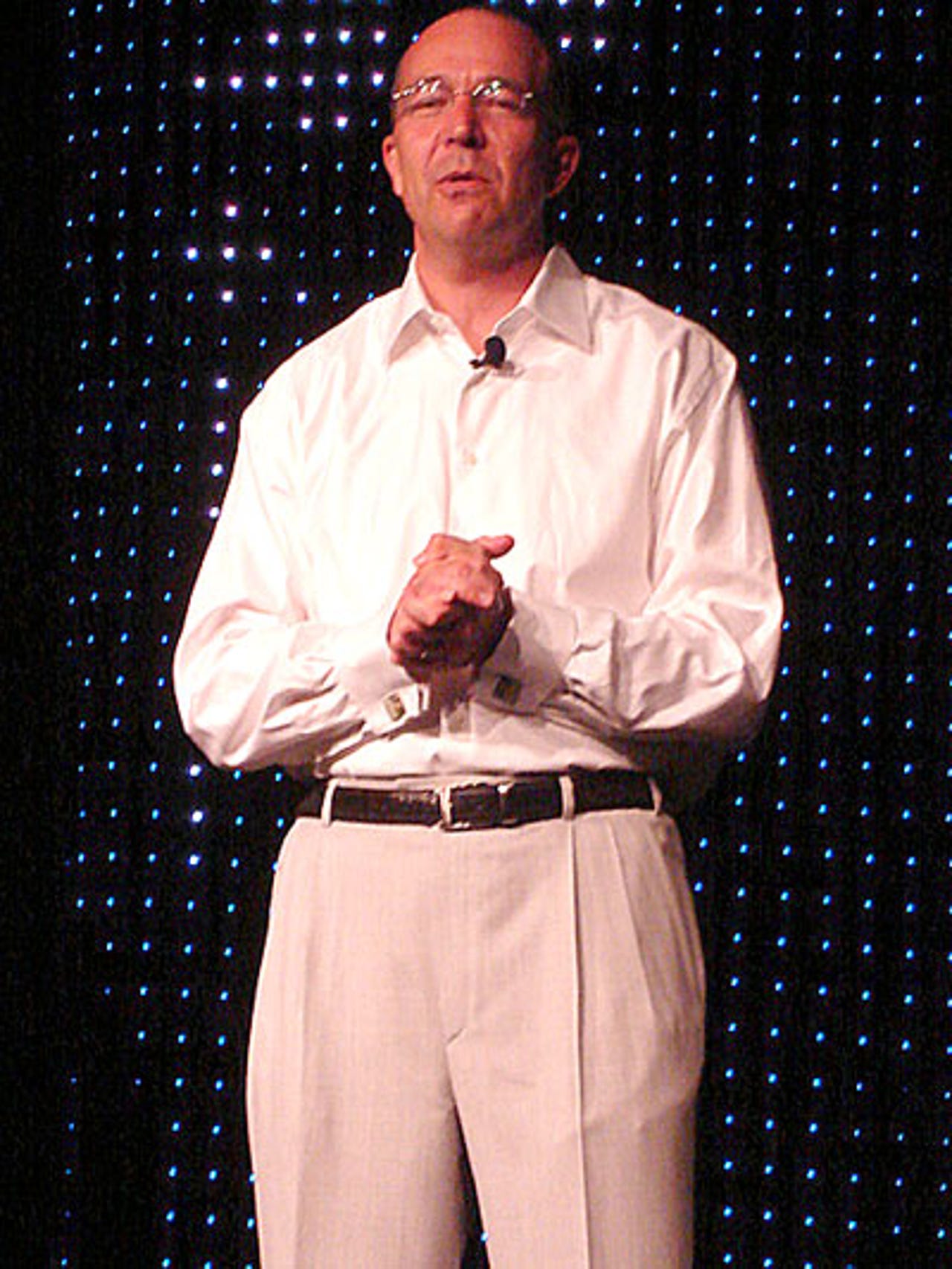Photos: Red Hat boss seeks The Truth


Red Hat chief executive Matthew Szulik kicked off the company's second annual user conference in Nashville, Tennessee by emphasising the open source specialist's commitment to "democratising content".
Speaking to a crowd made up of a mixture of enterprise technology professionals and hardcore open source enthusiasts, Szulik chose to side-step specific issues of how the company is performing, preferring to expound his views on how open source technology can benefit society.
"The open source community drives social change and new, inventive ways to bring technology to markets. I don't think work is finished but one thing we have learned is that if your whole business is based on competing as a single corporation and a single identity, you're going to find it increasingly difficult to compete with a community," Szulik said.
Szulik briefly commented on the company's ongoing acquisition of JBoss, the open source application server and middleware company. He claimed that although the move had been categorised in the press as an attempt by Red Hat to take on more mainstream tech companies such as IBM and Microsoft, it was really about delivering customers a complete stack of software.
In a speech that was introduced by a short video repeating the mantra "Truth Happens", Szulik also chose to comment on how the Internet and blogging have become a major source of political interaction and information. On the issue of transparency of information, Szulik used the example of New Orleans, the site of the 2005 Red Hat summit, which suffered huge damage from Hurricane Katrina last August.
"Lots of questions are still being asked about what happened in New Orleans — what really happened there?" asked Szulik.
The Red Hat boss chose to make his speech short, claiming that he did not wish to ape the normal conference performances of leaders of proprietary companies who "try to sound smart and technical for 45 minutes", and left more time for Red Hat execs to discuss specific projects and for partners to contribute.
Red Hat manager of quality engineering Jay Turner followed Szulik onstage to discuss a new testing project the company is preparing to launch, which it claims will give customers the ability to create more robust implementations of the open source specialist's software in their companies.
The project does not have a name as yet but Turner revealed that the testing project will build on existing tools such as the company's dogtail graphical test utility. "Today I am here to announce that we are submitting a new testing project to the Fedora board to establish standards around open source testing and give us all the confidence we need," he said.
Turner said the project's overall aim was for the community to find ways to improve testing in a collaborative way. "The final point is that we want to develop process together. We know we are good at this, but know a lot of you are good too."
A key theme of this year's summit is Red Hat's participation in the One Laptop per Child (OLPC) project. The leader of the project, Nicholas Negroponte, is due to speak at the show on Friday, but Red Hat's engineering manager for OLPC, Chris Blizzard, was on hand to discuss his company's part in the scheme.
Blizzard said OLPC is not being driven by the desire to spread the open source message around the world, but by higher ideals. "It is about learning, it's not to do with putting open source in people's hands. These laptops contain ad hoc wireless networks — all those kids can share and collaborate with each other."
Red Hat has faced some tough techical challenges shrinking its desktop software onto the laptop's 500MB of flash memory, but claims to have reduced the footprint from around 1.5GB down to around 120-130MB by creating a "remix" of its distribution. "How we take what we have today and add it onto this laptop is one of the biggest issues," said Blizzard.
Technical issues aside, Red Hat says the key to the project's success is to imagine the benefit it could bring to one child, and hope that that can be replicated to millions of others. "We talk abut social impact — 300 million kids could be impacted — but we have to think about one kid and keep one focus. If we can replicate that 100 million times then we have suddenly had a massive social impact," said Blizzard.
Described by his boss Matthew Szulik as a "rock god" of the open source community, Red Hat principal software engineer Havoc Pennington unveiled a project known as Mugshot.
The software, made up principally of a Web site enabled with collaboration tools, is designed, according to Pennington, to bring open source to people who may not have encountered it before via a "live social experience around entertainment".
Mugshot will allow users to collaborate online and discuss and exchange information around topics such as music and television. "Mugshot is not just a site but about connecting desktops of users. What has this got to do with Red Hat? The reason I got into open source is because it's about collaboration and freedom," said Pennington.
Mugshot will initially only be available via a limited user trial, on a first-come, first-served basis. You can find out more about the project here.
Cory Doctorow, co-editor of Boing Boing and fellow of the Electronic Frontier Foundation, took the final keynote slot at the first day of the conference.
He held forth on the misuse of digital rights management technology by companies such as Sony, claiming that such technology was fundamentally "unscientific".
"Open source is science, and before science we had alchemy. The difference between alchemy and science is that science publishes its findings. DRM is not grounded in science because it is founded on keeping things secret," Doctorow said.